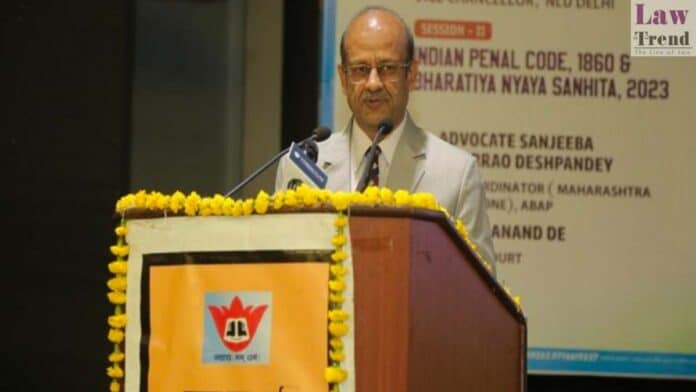In a recent speech at the Legal Conclave 2023 held in Delhi, Justice Rajesh Bindal of the Supreme Court expressed his support for the government’s decision to introduce three new bills that would replace the Indian Penal Code (IPC), Criminal Procedure Code (CrPC), and the Evidence Act. Justice Bindal emphasized the importance of change and welcomed the introduction of community service as a punishment in the new bills.
The proposed bills, namely the Bharatiya Nyaya Sanhita, 2023, the Bharatiya Nagarik Suraksha Sanhita, 2023, and the Bharatiya Sakshya Bill, 2023, aim to update and modernize the existing laws. Justice Bindal acknowledged that implementing the new provisions would take time and might initially raise some issues. However, he cited examples of previous laws, such as the GST Act in 2017, which were initially met with resistance but eventually became accepted by the public.
According to Justice Bindal, major changes cannot be achieved through mere amendments, as many acts are interconnected. He highlighted that other countries like the United Kingdom and Canada frequently revise their criminal laws, emphasizing the need for India to adapt and accept new laws. Justice Bindal emphasized that laws should not remain static and must be dynamic, leaving certain decisions to the courts.
During the event, Justice Bindal also highlighted the immense backlog of cases in the Indian judicial system, with 44.5 lakh pending cases in High Courts and 4.45 crore pending cases in district courts. He stressed that the proposed bills aim to decongest Indian jails by enabling the granting of bail to undertrials who have served over half of their maximum sentence. Additionally, first-time offenders would be eligible for bail once they have completed one-third of their sentence, even before the trial is concluded. Justice Bindal also emphasized the need to improve the conditions and functioning of jails across the country.
Also Read
The event also saw the participation of Additional Solicitor General Vikramjeet Banerjee, who praised the incorporation of technology in the new bills to enhance the infrastructure of evidence and investigation. Justice Hari Shankar of the Delhi High Court pointed out that the new bills prioritize speedy trials and incorporate technological advancements. He noted the inclusion of emails, phones, computers, messages, and maps in the definition of evidence under the Bharatiya Sakshya Bill, 2023. Justice Shankar expressed surprise that it took 75 years for these bills to be introduced but commended their necessity, stating that they would expedite the trial process.




